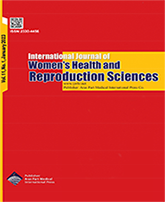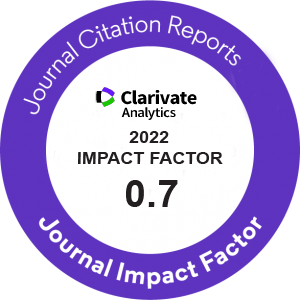| Original Article | |
| Adherence Does Not Guarantee the Outcome of Iron Supplementation for Reproductive-Age Women With Anemia in West Papua Province, Indonesia: A Quasi-experimental Study | |
| Yasinta Rakanita1, Rano Kurnia Sinuraya1, Sofa Dewi Alfian1, Eka Widrian Suradji2, Auliya Abdurrohim Suwantika1, Mas Rizky Anggun Adipurna Syamsunarno3, Rizky Abdulah1 | |
| 1Department of Pharmacology and Clinical Pharmacy, Faculty of Pharmacy, Universitas Padjadjaran, Jatinangor, Indonesia 2Department of Public Health, Faculty of Medicine, Krida Wacana University, Jakarta, Indonesia 3Department of Biomedical Sciences, Faculty of Medicine, Universitas Padjadjaran, Jatinangor, Indonesia |
|
|
IJWHR 2023; 11: 003-010 DOI: 10.15296/ijwhr.2023.02 Viewed : 1515 times Downloaded : 3507 times. Keywords : Iron, Dietary supplement, Anemia, Women, Treatment adherence |
|
| Full Text(PDF) | Related Articles | |
| Abstract | |
Objectives: Monitoring iron supplementation effectiveness in the affected populations is important in assuring its success. The research objective of this study is to evaluate the effectiveness of iron supplementation and its related factors in increasing the hemoglobin levels of women with anemia that reside in the area of Teluk Bintuni Regency in West Papua Province, Indonesia. Materials and Methods: A quasi-experimental study was performed to determine the changes in hemoglobin levels and the adherence between two supplementation groups (before and after supplementation). From the initial screening of hemoglobin levels of 875 reproductive-age women, 110 women with moderate and severe anemia were enrolled for a month-long iron supplementation therapy. This study was conducted from September 2018 until November 2019 at Teluk Bintuni Regency, West Papua, Indonesia. The changes in hemoglobin levels were measured after 30 days of iron supplementation. The associated factors, including participants’ characteristics, chronic energy deficiency (CED) levels, adherence to supplementation programs, and knowledge of anemia, were also assessed. The adherence level to the supplementation was measured using the Medication Adherence Rating Scale (MARS) questionnaires and the pill counting method. Results: The mean hemoglobin level significantly increased from 9.12±1.70 before supplementation to 10.15±1.65 after 30 days (P < 0.001). Interestingly, results from the MARS questionnaires and pill counting method suggested that only 76% and 66% of participants adhered to the supplementation program, respectively. Further univariate analysis showed that adherence, ethnicity, and type of supplementation were factors that may influence the success of the iron supplementation therapy. Conclusions: Based on this study findings, it can be concluded that anemia is related to various factors, and its implementation should be carefully monitored, not solely depending on individual adherence. |
Cite By, Google Scholar
Google Scholar
PubMed
Online Submission System
 IJWHR ENDNOTE ® Style
IJWHR ENDNOTE ® Style
 Tutorials
Tutorials
 Publication Charge
Women's Reproductive Health Research Center
About Journal
Publication Charge
Women's Reproductive Health Research Center
About Journal
Aras Part Medical International Press Editor-in-Chief
Arash Khaki
Mertihan Kurdoglu Deputy Editor
Zafer Akan























